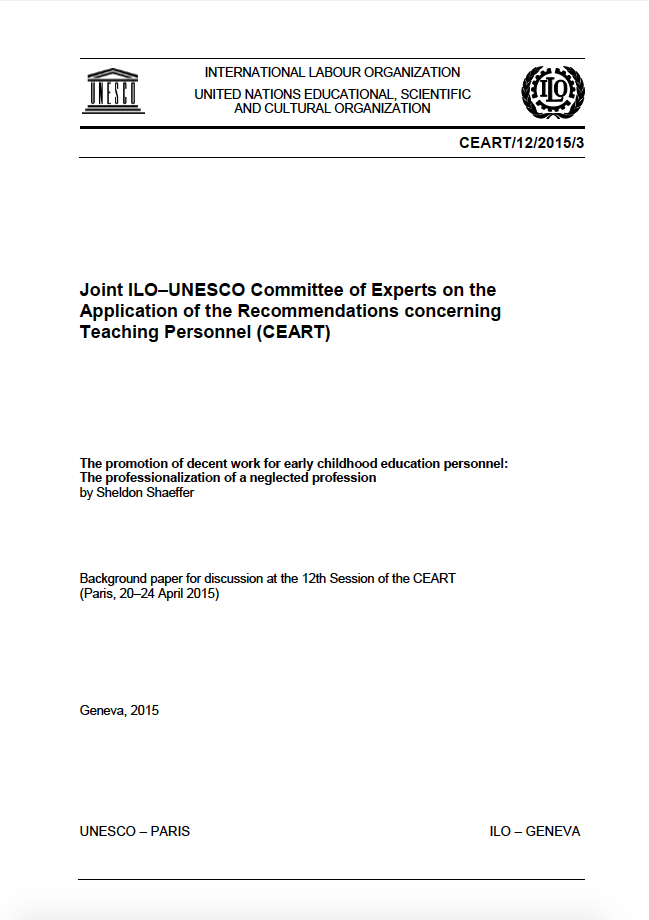
This background paper highlights the importance of early childhood development and presents ECE data on demand, enrolments and national policies. It also discusses the important role of pre-primary/early childhood education and the complexities of the teaching profession. Special emphasis is given into the professionalization of the field and examples in the following fields: 1) the roles and responsibilities of government bodies, employer organizations, trade unions and civil society groups; 2) ECE content: Curricula and teaching methods; 3) ECE financing; 4) Preparation for the profession; 5) Recruitment, deployment and retention; 6) Professional and career development; 7) Employment terms and conditions; 8) Learning and teaching conditions; 9) Evaluating ECE personnel; and 10) ECE governance and social dialogue.
Drawing on the analysis of those factors, a variety of recommendations in line with the 1966 ILO/UNESCO Recommendation concerning the Status of Teachers, as well as the ILO guidelines, have been suggested, which should be put in place by governments and other providers of early childhood education to enhance the professionalization of – and improve the working conditions of – ECE personnel.


